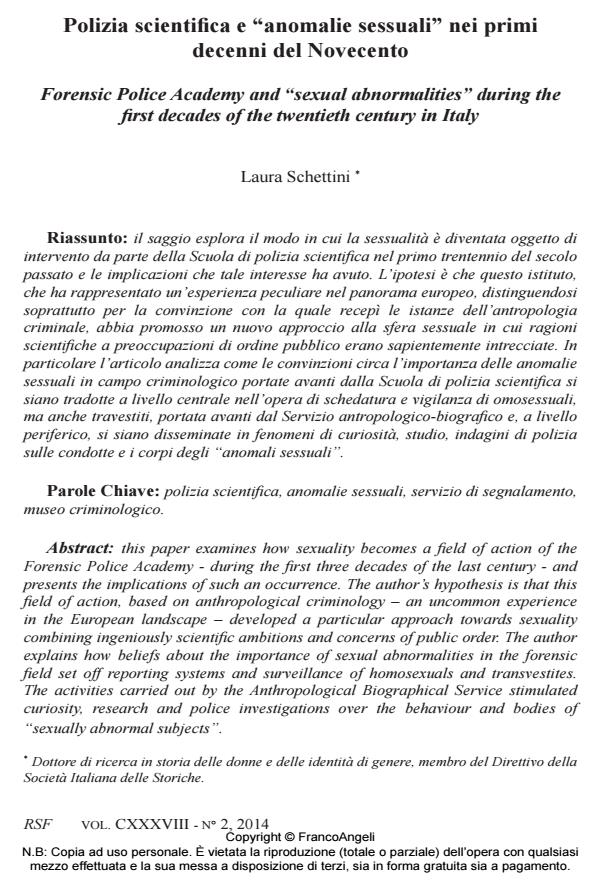Forensic Police Academy and "sexual abnormalities" during the first decades of the twentieth century in Italy
Journal title RIVISTA SPERIMENTALE DI FRENIATRIA
Author/s Laura Schettini
Publishing Year 2014 Issue 2014/2
Language Italian Pages 15 P. 43-57 File size 1622 KB
DOI 10.3280/RSF2014-002005
DOI is like a bar code for intellectual property: to have more infomation
click here
Below, you can see the article first page
If you want to buy this article in PDF format, you can do it, following the instructions to buy download credits

FrancoAngeli is member of Publishers International Linking Association, Inc (PILA), a not-for-profit association which run the CrossRef service enabling links to and from online scholarly content.
This paper examines how sexuality becomes a field of action of the Forensic Police Academy - during the first three decades of the last century - and presents the implications of such an occurrence. The author’s hypothesis is that this field of action, based on anthropological criminology – an uncommon experience in the European landscape - developed a particular approach towards sexuality combining ingeniously scientific ambitions and concerns of public order. The author explains how beliefs about the importance of sexual abnormalities in the forensic field set off reporting systems and surveillance of homosexuals and transvestites. The activities carried out by the Anthropological Biographical Service stimulated curiosity, research and police investigations over the behaviour and bodies of "sexually abnormal subjects".
Keywords: Forensic services, sexual abnormalities, reporting, museum of criminology.
Laura Schettini, Polizia scientifica e "anomalie sessuali" nei primi decenni del Novecento in "RIVISTA SPERIMENTALE DI FRENIATRIA" 2/2014, pp 43-57, DOI: 10.3280/RSF2014-002005